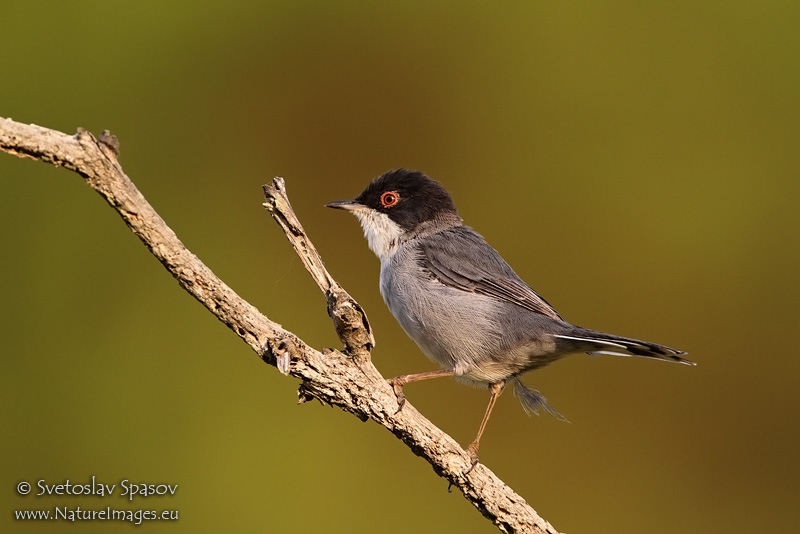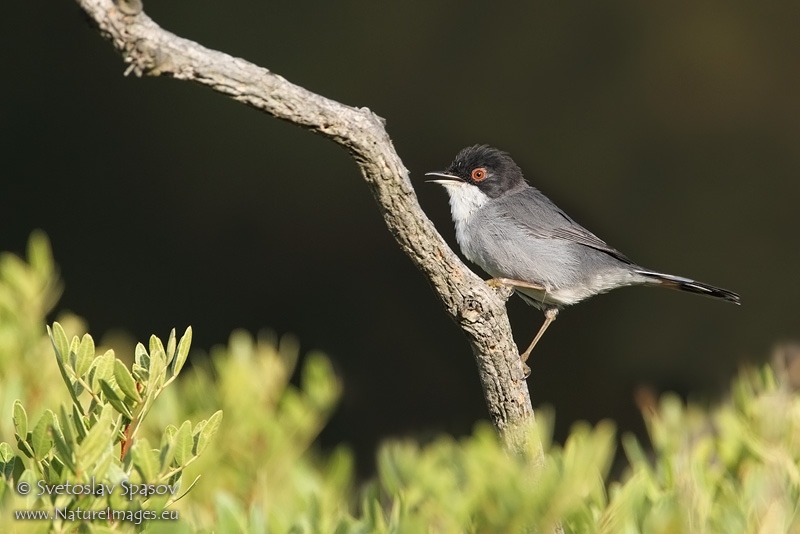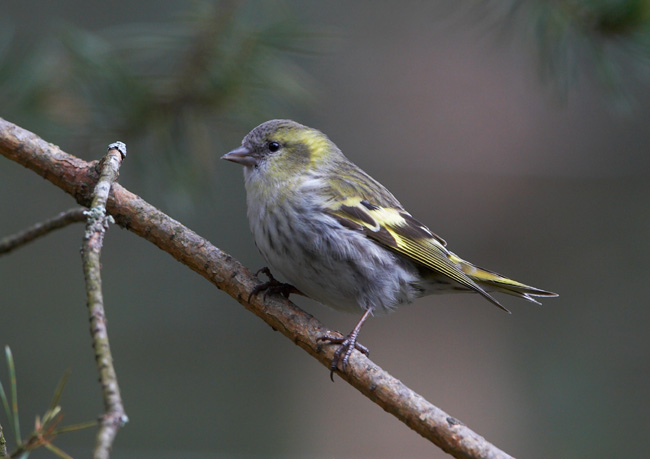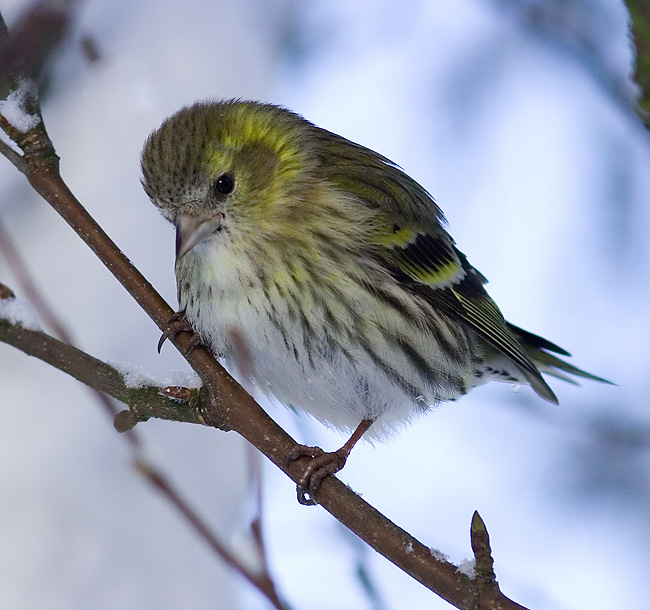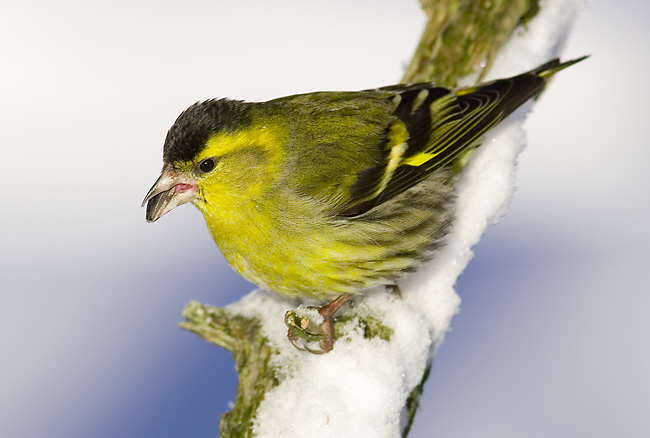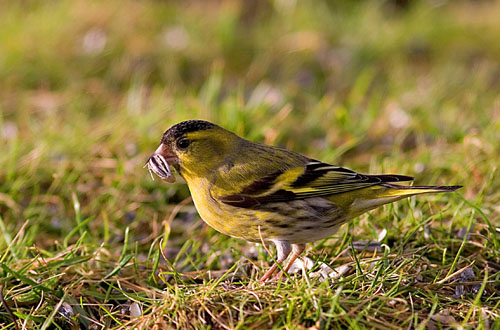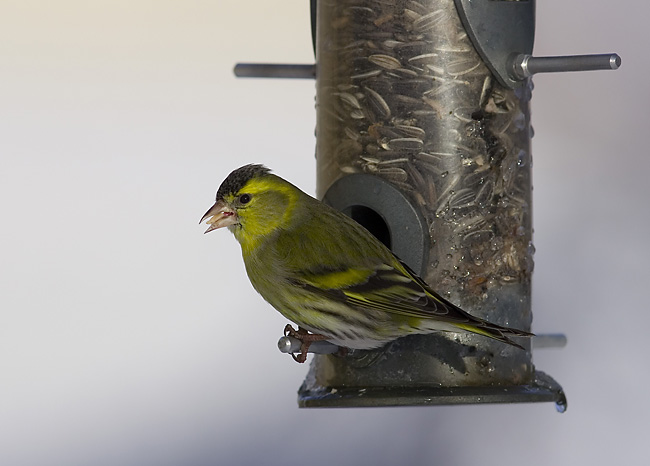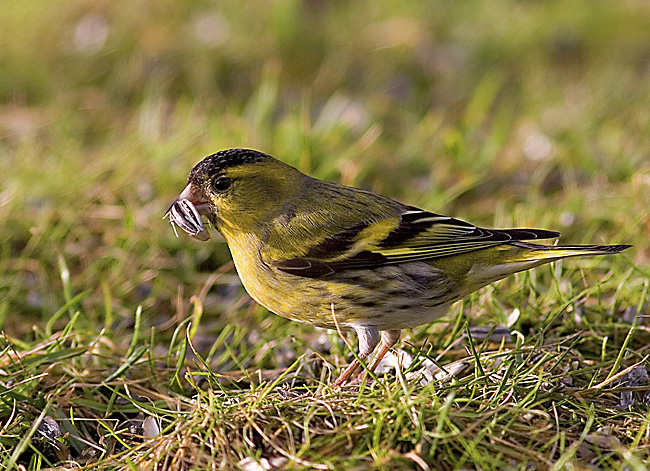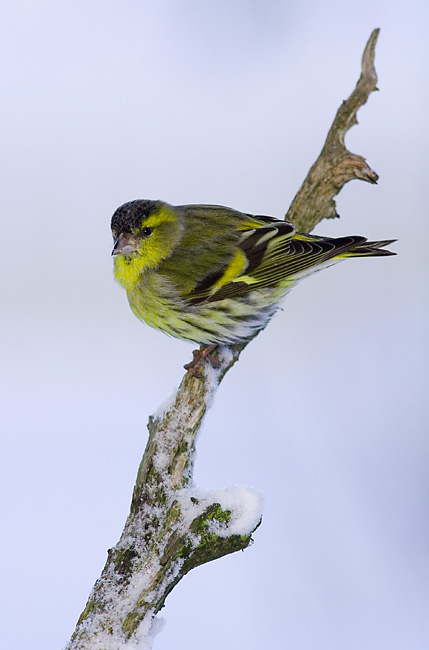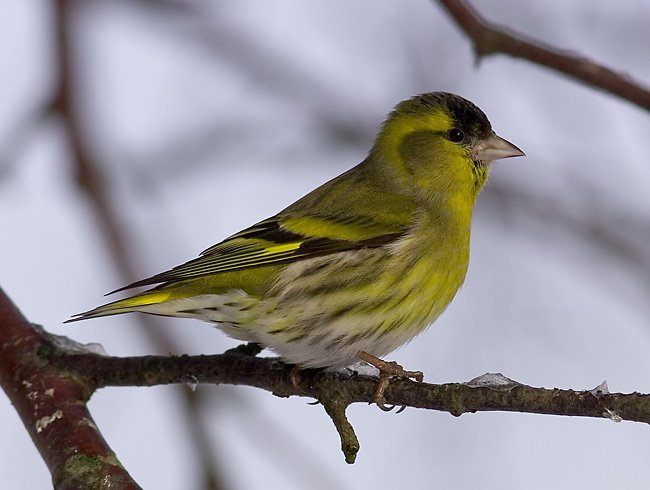Sardinian Warbler (Curruca melanocephala)
Siskin (Spinus spinus)
Slender warbler with long tail, short wings and pointed bill. Restless and alert with frequently raised crown feathers and dark eye framed in red. Male with black head, white throat, greyish upperparts and off-white underparts. Female less striking, with grey head grey-brown upperparts, distinct buff flanks and paler belly. Both sexes with white sides and corners to tail. Rarely sits exposed, and usually betrays itself by it's frequently used scolding call. Often just glimpsed when it dives into a bush, spreading it's tail and showing the white markings.
Sound:Epitome of mediterranean sylvias, and learning the songs of the genus should start with extensive listening to this species (use xeno-canto link below). Scolding call a machinegun-like, short and harsh rattle. Usually consisting of 2-5 notes with some variation in timbre and delivery. Song a stream of varied, short notes, constantly interspersed with variations of the scolding call. Phrases 2-5 sec. long. Easily confused with several other sylvias, especially in the eastern part of the Mediterranean. Rattling sound (in both song and call) differs from most other congeners by being considerably harder and more "smacking". Dartford Warbler most similar, but usually betrays itself by it's characteristic and frequently used contact call (also interspersed when singing).
Song:
Distribution:
Xeno-canto: map
Ecology:Birdlife ecology
Links:
Observation.org Latest observations
Image search Flickr NB! May give other species
CCSmall green and yellow finch with contrasting dark wings and tail. Underparts whitish with grey streaking. Secondaries, inner primaries and outer tail feathers with yellow base. Relatively long and pointed bill as opposed to Serin. Male distinct with black crown and bib, bright yellow chest, throat and hind-cheeks. Female less contrasty, with more prominent streaking. Juveniles paler and duller than adults, with even heavier streaking than females.
Sound:Distinct calls and song. Most often heard is the sharp and disyllabic contact call: "doo-lee", with both notes descending. Sometimes given a in monosyllabic manner "dlyy". The contact call is also prominent in the improvised song. Other typical sounds in the song includes a peculiar wheeze, like someone sucking their teeth, and lots of expert mimicry.
Song:
Distribution:
Wikipedia: map (se also Xeno-canto below)
Ecology:Birdlife ecology
Links:
Observation.org Latest observations
Image search Flickr NB! May give other species
CC
 English
English Albanian
Albanian
 Armenian
Armenian
 Bulgarian
Bulgarian
 Catalan
Catalan
 Croatian
Croatian
 Czech
Czech
 Danish
Danish
 Dutch
Dutch
 Finnish
Finnish
 French
French
 Georgian
Georgian
 German
German
 Greek
Greek
 Hungarian
Hungarian
 Italian
Italian
 Latvian
Latvian
 Lithuanian
Lithuanian
 Macedonian
Macedonian
 Norwegian
Norwegian
 Polish
Polish
 Portuguese
Portuguese
 Romanian
Romanian
 Russian
Russian
 Sami : Lule sami
Sami : Lule sami
 Sami : North sami
Sami : North sami
 Sami : South sami
Sami : South sami
 Scientific names
Scientific names
 Serbian
Serbian
 Spanish
Spanish
 Swedish
Swedish
 Ukrainian
Ukrainian


